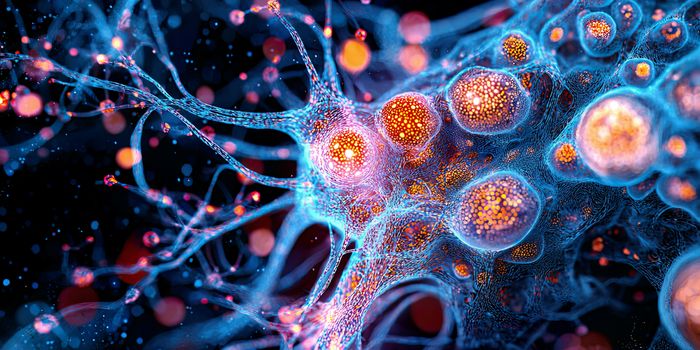Organic Meat is Less Likely to Harbor Nasty Pathogens
Organic food has been touted as healthier, but that's been debated. While producers that supply organic meat now have to comply with certain rules, like raising animals without hormones or antibiotics, organic meat does not necessarily have more nutritional value. But scientists have now found that organic meat may be healthier, or at least, less risky to consume than conventionally produced meat. Meat that is certified as organic by the U.S. Department of Agriculture is less likely to contain bacterial pathogens that can cause illness in people. That includes drug-resistant microbes that are especially dangerous and difficult to treat. The findings have been reported in Environmental Health Perspectives.
Meat that is USDA-certified organic is from animals that have never been exposed to antibiotics or hormones, and the feed and forage they consume, like hay and grass, must also be organic. Antibiotic use in agriculture might be increasing the levels of antibiotic-resistant microbes in livestock and farmed animals.
Since 1996, the U.S. National Antimicrobial Resistance Monitoring System (NARMS) has tracked antibiotic resistance in bacteria that were found in farmed animals, and retail foods, and cases of foodborne illness. NARMS randomly samples meats for contamination by four microbes: Campylobacter, Enterococcus, Escherichia coli, and Salmonella.
In this work, researchers from the Johns Hopkins Bloomberg School of Public Health assessed NARMS data from 2012 to 1017. They found that organic meats were 56 percent less likely to harbor multidrug-resistant bacterial contamination compared to conventional meat.
There were 39,348 meat samples analyzed during that period, revealing 1,422 specimens that were contaminated with at least one multidrug-resistant pathogen. In conventional meats, the contamination rate is almost four percent. In organic meat, the contamination rate drops to one percent. This research shows that foodborne illness poses a risk to consumers, and that's why it's important to cook meats thoroughly so any potential pathogens are killed, and avoid cross-contaminating other foods with uncooked meat. Consuming contaminated meat that's not cooked properly can lead to life-threatening infections.
"The presence of pathogenic bacteria is worrisome in and of itself, considering the possible increased risk of contracting foodborne illness," said senior study author Meghan Davis, D.V.M., Ph.D., associate professor in the Department of Environmental Health and Engineering at the Bloomberg School. "If infections turn out to be multidrug-resistant, they can be more deadly and more costly to treat."
This study also suggested that processing facilities might have an impact on contamination. There are processing facilities that deal with both conventional and organic meats, as well as dedicated processors for each type. The places that only process conventional meat carried bacteria about a third of the time, while facilities processing both types were contaminated one quarter of the time.
"The required disinfection of equipment between processing batches of organic and conventional meats may explain our findings of reduced bacterial contamination on products from facilities that process both types of meats," suggested Davis.
"How we raise animals matters. As a veterinarian, I recognize that we sometimes need to use antibiotics to treat sick animals, but taking advantage of opportunities to reduce antibiotics use could benefit everyone. Consumer choice and regulatory oversight are two strategies to do this," Davis concluded.
Sources: Science Daily via Johns Hopkins University Bloomberg School of Public Health, Environmental Health Perspectives









